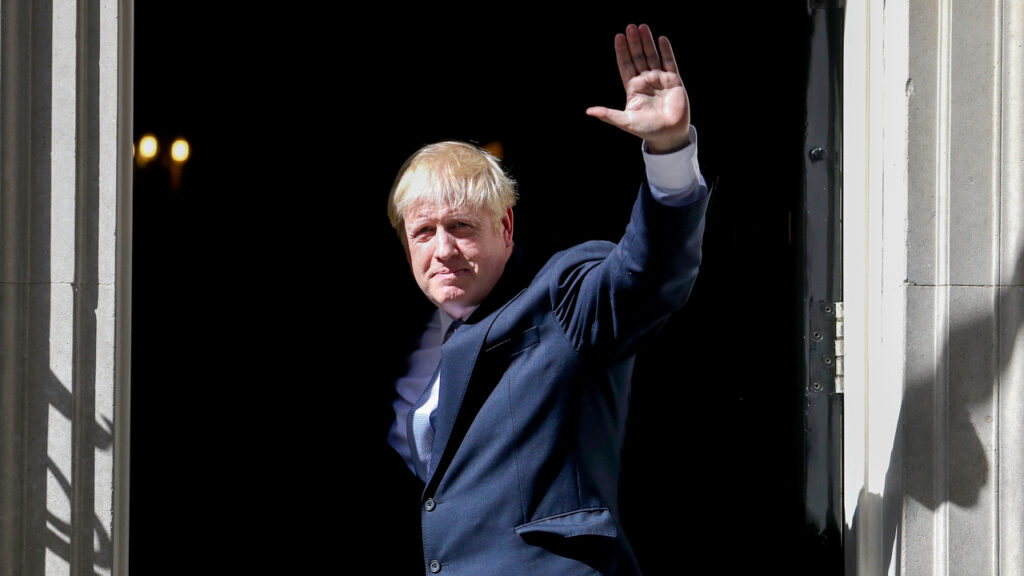The painful realization that climate policy has gone too far and must respect reality and the limits of people’s economic tolerance has yet to reach Canada. Instead, the response here to the protests in Europe over the energy crisis, the geopolitical consequences of dependence on Russian gas, the upheaval in Sri Lanka and the fall of Boris Johnson is… more of the same. Specifically, Ottawa has plans for a cap on emissions specific to the energy sector itself, in addition to its general plan to reduce economy-wide emissions, and oil producers are worried about having to cut back production in a world, and a country, in desperate need of available, affordable energy.
So far it’s just a discussion paper, released on July 18. But discussions with Canadian governments tend to be one-way affairs generally, and on climate in particular the feds in particular have shown mighty little flexibility. So evidently in addition to pummelling the oil and gas sector generally with carbon taxes and vetoes on megaprojects even if they stagger through the regulatory maze, the feds intend to single it out for a specific, up close and personal beating.
Those with one foot in the sane camp on climate, believing there’s a crisis but wanting to use market mechanisms to reduce emissions, ought to be tearing their remaining hair out over this approach. If emissions are bad, but cuts in fossil fuel use are painful, the proper market-driven approach would be to set an appropriate “price” for “carbon pollution” and let producers and consumers figure out the least painful ways to reduce it through the “spontaneous order” of countless decentralized private decisions. We would call this approach “efficient” but for some reason people often mishear that word as “heartless” whereas it actually means the most gain for the least pain.
One reason advocates seem to shy away from anything resembling an efficient system, in favour at the very least of piling carbon pricing atop regulations instead of having it replace them, is that all rational calculations of the true “social cost of carbon” top out around $50/tonne, which would be an annoyance for consumers but would not stop us using oil and gas in vast amounts. But we’re talking about the half-sane people here, the ones who understand economics sufficiently to value efficiency and understand trade-offs.
Such people should be horrified that the feds are dictating cuts on a sector-by-sector basis because they assume they understand the economy better than the people actually engaged in it. It’s Hayek’s “fatal conceit” again, that central planners can override market signals and end up with more and better information, better coordinated, rather than the ignorance and chaos that always mysteriously seems to result. And they’re taking this appalling risk for what, exactly?
We ask because if current carbon pricing doesn’t get the reduction they magically know is needed, all they have to do is raise that price until it does, in the least painful way possible. So what possible reason is there for attempting to do it piecemeal even if you could? What do you care where the reductions come as long as they come? And what use is it to meet targets in one sector if you miss them laughably in others? That approach would be all pain for no gain. Can they be that stupid?
We do not ask in the spirit of a challenge. But the answer may well be yes. And if so they’re not alone.
It is worrisome that the “oilpatch” is saying it doesn’t think it can produce energy in sufficient amounts under this system. One news story called Mark Cameron “vice-president of the Pathways Alliance, a key group of energy companies that account for 95 per cent of production in the Alberta oilsands” and quoted him that “The biggest risk is if we just can’t comply and don’t have the mechanisms that allow us to comply, that we would have to shut in production as opposed to investing in technology to reduce emissions.”
In fact the “Pathways Alliance” is just Cameron’s latest venture in surrender on the installment plan; its “Mission” is “Our goal is to achieve net zero greenhouse gas emissions from our operations by 2050, while supplying the energy the world needs. That’s why we’re working with the federal and provincial governments to help meet Canada’s climate goals.” But if you are “working with” them, are they working with you?
Not a bit of it. They have ignored all your input up to now and have no interest in what else you have to say. They don’t want your operations to achieve net zero emissions, they want your operations gone. For them if proposed new rules devastate conventional energy production in Canada it’s a feature not a bug.
How those in the sector failed to see this approach coming, generally and with specific regard to these regulations, is difficult to understand. But now it’s closer and bigger so maybe they will.
The Alberta government managed to be surprised as well. Its Energy Minister said:
“I’m a little amazed by the timing of it. It’s tone deaf from the federal government to be pushing this at a time when the world is looking for more energy. And it’s looking like in Europe, they’re going to be rationing natural gas over the winter … and yet we’re punishing oil and gas workers, and the oil and gas industry in Canada.”
And as columnist Chris Varcoe noted, the whole thing has the usual combination of arrogance and vagueness:
“Federal Environment Minister Steven Guilbeault kicked off consultations this week on the Liberal government’s discussion paper surrounding a new emissions cap to be placed on the oil and gas industry. During last year’s federal election, the Liberals pledged to establish such a limit on the single-largest emitting sector in the country as the country pursues a net-zero target by 2050, and steep interim cuts by 2030. Today, details matter, particularly for an industry that employs thousands of Canadians and needs to invest billions of dollars to lower its greenhouse gas emissions. Modelling in the federal government’s emissions reduction plan unveiled this spring projected industry emissions will fall by 42 per cent (from 2019 levels) by 2030, although the actual trajectory of the drop — and details of the policy — must still be sorted out.”
Varcoe adds that the discussion paper “lays out two key options”, one being a cap-and-trade system that puts “a hard limit on industry emissions, establishing a total quota of allowable emissions, which would fall over time” and the other is to raise the existing carbon tax for this industry alone. (Which sounds like a computational and enforcement nightmare.) What’s more, he quotes the CEO of a carbon capture firm that “This is a strange development. It looks like the government wants to add a whole separate, supplemental energy tax to the carbon tax … this would lead us to believe that they’re already expecting their primary policy to fail”.
If they even had one.



Perhaps embedded within the anti-capitalism goals of green zealotry (encompassing the ruling elite) is that part of post modern nihilism which includes "diversity, inclusion, and equity" and its adherents want to focus on the "equity" portion in central planning the Canadian economy down a few notches by impoverishing all those who have benefitted from low-cost energy as some kind of atonement. I see no other goals that could be achieved on this trajectory. The majority of voting Eloi, preferring legacy media state-sanctioned narratives and institutional cheerleading, likely won't notice until freezing in the dark or starvation sets in.
Is it possible that, in fact, the so called 'intelligentsia' who speak openly in a mean-spirited tone, with vindictiveness and arrogance toward energy sector workers and farmers in Canada, are actually exposing a form of mental illness in themselves? Isn't destabilizing our energy supply and our food supply clearly also destabilizing our national security?
Authoritarianism is a disease that infects those in power with the delusion that they know better than the masses. They may be technically correct in certain specialized areas, but they have tunnel vision otherwise. Surrounded by sycophants & armed guards, how can they hope to get a sense of the common citizen, or understand why they should want/need to do so?
We citizens fail in our duty to ourselves when we casually assume that our movers & shakers have it all in hand, & we can go back to our Netflix & microwave popcorn. These are not the issues our ancestors fought & died over to ensure a free & wealthy Canada, and there is no reason to believe that today's politicians are more skilled than those arrayed on one side or the other during the 1794 French Revolution. I fear we may see a modern replication of that dreadful year, & the subsequent centuries of repercussions. My one great advantage is that I know for certain that I can't predict the future, and can reasonably project that statement to apply to the rest of us. Good luck to all!
I wonder what would happen to the prime minister if a million Canadians froze to death?
It has been said,
Control the food and control the people. Control the energy and control whole continents. Control the money and control the world.
Now this may sound very much like a consprisery theory but it does correlate with what the polictical leaders and others are working towards.
I mean to say, why have Kelly, Gore, Gates, built multi million dollar houses on the East Atlantic sea board if the sea levels are going to rise a metre/yard by 2030?